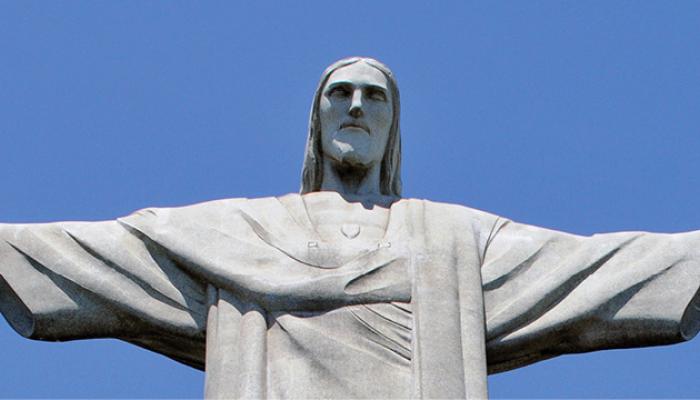
4.4 Si mund ta ndjek Jezusin dhe cila është thirrja ime?
A e doni Jezusin? Nëse përgjigjja juaj për këtë pyetje është “Po”, hapi tjetër është të pyesni veten se cili është plani i Jezusit për ju. Këtë mund ta zbuloni vetëm duke e ndjekur atë. Secili ka mënyrën e vet për ta bërë këtë, thirrjen e tij.
Një gjë është e sigurt: nëse gjeni thirrjen tuaj, me të vërtetë do të jeni të lumtur. Edhe ju mund të zbuloni se çfarë synon Jezusi për ju: sipërmarrjen, priftërinë, rritjen e fëmijëve, hyrjen në jetën fetare...
Si është formuar populli i Hyjit?
Në Kishë, për caktim hyjnor, janë mbarështuesit e shenjtë që kanë marrë Sakramentin e Urdhrit dhe formojnë hierarkinë e Kishës. Të tjerët quhen laikë. Nga të dy palët vijnë besimtarë, që i kushtohen Hyjit në mënyrë të veçantë me shpalljen e këshillave ungjillorë: dëlirësi në celibate, varfëri dhe dëgjesë. [KKKP 178]
Çfarë është jeta e shuguruar?
Është një gjendje jete e njohur nga Kisha. Është një përgjigje e lirë e një thirrjeje të veçantë të Krishtit, me anë të së cilës të shuguruarit i kushtohen krejtësisht Hyjit dhe priren drejt përsosmërisë së dashurisë nën ndikimin e Shpirtit Shenjt. Një shugurim i tillë karakterizohet nga praktikimi i këshillave ungjillore. [KKKP 192]
Çfarë i ofron jeta e shuguruar misionit të Kishës?
Jeta e shuguruar merr pjesë në misionin e Kishës nëpërmjet një dhurimi të plotë që u bëhet Krishtit dhe vëllezërve, duke dëshmuar shpresën e Mbretërisë qiellore. [KKKP 193]
How is the one, holy, catholic, and apostolic Church structured?
In the Church there are the laity and clerics (clergy). As children of God, they are of equal dignity. They have equally important but different tasks. The mission of the laity is to direct the whole world toward the kingdom of God. In addition, there are the ordained ministers (clerics), who have the duties of ecclesiastical governance, teaching, and sanctification. In both states of life, there are Christians who place themselves at God’s disposal in a special way through celibacy, poverty, and obedience (for example, consecrated religious).
Every Christian has the duty to bear witness to the Gospel by his own life. But God walks a special path with each person. Some he sends as laymen, so that they might build up the kingdom of God by their family and occupation in the midst of the world. For this purpose, he bestows on them in Baptism and Confirmation all the necessary gifts of the Holy Spirit. Others he entrusts with the pastoral ministry; they are to govern, teach, and sanctify his people. No one can take this duty upon himself; the Lord himself must send him on his way with his divine power through Holy Orders, so that he can act in the place of Christ and administer the sacraments. [Youcat 138]
Why does Jesus want there to be Christians who live their whole lives in poverty, unmarried chastity, and obedience?
God is love. He longs for our love also. One form of loving surrender to God is to live as Jesus did—poor, chaste, and obedient. Someone who lives in this way has head, heart, and hands free for God and neighbour.
In every age individual Christians let themselves be completely taken over by Jesus, so that “for the sake of the kingdom of heaven” (Mt 19:12) they give everything away for God—even such wonderful gifts as their own property, self-determination, and married love. This life according to the evangelical counsels in poverty, chastity, and obedience shows all Christians that the world is not everything. Only an encounter with the divine Bridegroom “face to face” will ultimately make a person happy. [Youcat 145]
What are the degrees of the sacrament of Holy Orders?
The sacrament of Holy Orders has three degrees: bishop (episcopate), priest (presbyterate), deacon (diaconate). [Youcat 251]
Why did God dispose man and woman for each other?
God disposed man and woman for each other so that they might be “no longer two but one” (Mt 19:6). In this way they are to live in love, be fruitful, and thus become a sign of God himself, who is nothing but overflowing love. [Youcat 260]
Unë dëshiroj t'ju shpreh, përveç intensitetit të ndjenjave të mia të dashurisë, shpresën time. Po, shpresën time, sepse ju jeni premtimi i së nesërmes. Ju jeni shpresa e Kishës dhe e shoqërisë. Duke ju soditur, mendoj me frikë dhe me besim për atë që ju pret në jetë dhe për atë që do të jeni në botën e nesërme dhe, dëshiroj t'ju lë, si viaticum për jetën tuaj, tre mendime: kërkoni Jezusin, duajeni Jezusin, dëshmojeni Jezusin. [Papa Gjon Pali II, Fjalimi drejtuar të rinjve italianë, 8 nëntor 1978]





